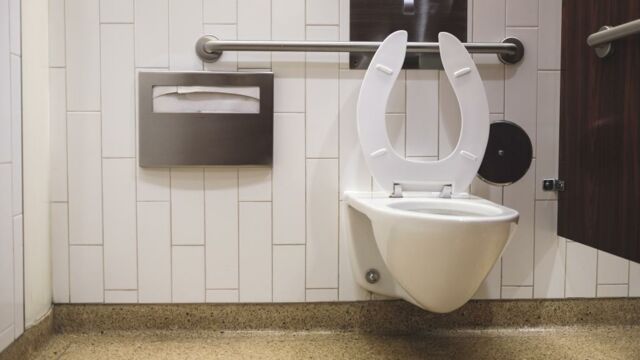Needing to use the toilet while out and about is everyone’s living nightmare. While some are perfectly prepared to drop trow in a restaurant stall, the rest of us will furiously clench our cheeks until we’ve reached the sanctity of our own bathrooms.
Discover our latest podcast
And, with a global pandemic forcing us to consider sanitation at unprecedented levels, public loos seem even more threatening.
But can we actually catch COVID from a public bathroom? One recent study doesn’t seem to think the chances are very high.
You're not likely to contract COVID from a public toilet
Research published in the journal Science of Total Environment set out to put an end to the question once and for all. The study led by Professor Sotiris Vardoulakis from the Australian National University analysed 38 studies from 13 countries. The studies from 2000-2020 were used to determine thechances of viral and bacterial transmission from using a public toilet.
The study also accounted for the possible modes of transmission in a public restroom environment, such as inhalation, surface contact and faecal to oral transmission. Flushing the toilet and hand-dryers could also increase the potential for aerosolisation - yet another reason you should close the lid when flushing.
However, despite the terrifying environment, research showed the chances of contracting COVID from apublic toiletwas actually pretty low, given the bathroom was regularly cleaned. Professor Vardoulakis explained in a statement:
We realise people are worried about using public washrooms during the pandemic, but if you minimise your time in the bathroom, wash and dry your hands properly, and don’t use your mobile phone, eat or drink, then bathroom use should remain low risk.
Previous studies have shown that coronavirus isn’t likely to spread through public surfaces like crossing buttons and mailboxes, so it makes sense that touching a tap wouldn’t be detrimental to your health. However, regular hand sanitisation is still recommended.
COVID has been known to shed through faeces
Australia is now also assessingthe potential for COVID to spread through faecal waste, as patients have been known to shed the virus through their faeces, making it a potential transmission source. Additionally, aerosol particles are widely known to spread the virus. However, Professor Vardoulakis stated there’s no evidence that these modes of transmission would be a threat in public bathrooms:
There are a number of reasons it is low risk in public toilets – people don’t spend a long time in bathrooms and don’t interact with others. Importantly, the aerosols you may inhale when you flush the toilet come from your own human waste. The risk of cross-contamination is not very high.
Now that Professor Vardoulakis has cleared the air, so to speak, public bathrooms seem much less daunting. Still, we wouldn't trust a portaloo.















